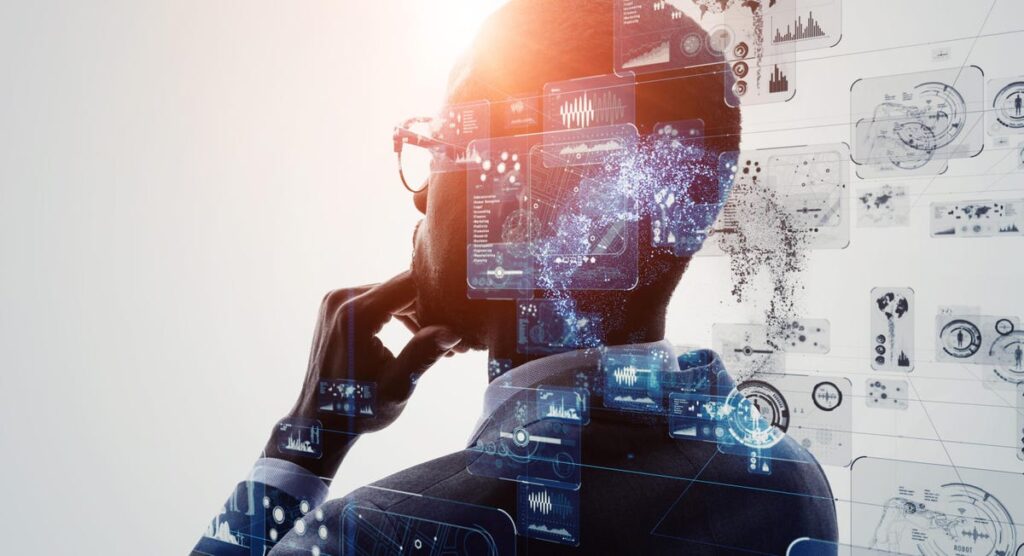
How will AI change the Future of the Workplace?
Last updated on June 23rd, 2022 at 04:05 am
In the digital transformation era, businesses are betting on better technology for more promising marketing opportunities. AI and machine learning have been powering up business owners with finer opportunities and efficiencies during the process.
AI has proven to be a blessing for almost all industries. Artificial intelligence has been helping individuals from the software industry with better work environments, enhanced versions of work opportunities, more balanced workforce management, and whatnot with the help of software test automation. AI has been beneficial in every aspect of a business with its intricate structure. With artificial intelligence, there is more organization and automation of work that makes the process more competent and efficient. Let’s read further to understand how AI has brought a change in the future of the workplace.
Ways in which AI can bring a change in the Future of the Workplace:
Artificial intelligence is the process of automation. It is a process to get the work done faster and smarter. When it comes to a workplace, many things can be changed. The future of the workplace is all about smart work management where the work can be more dependent on technology and less on human efforts.
In this fast pace of life, you would want your business to match the speed and beat the running competition in the market. In this battlefield, AI works like a weapon through software test automation. Automate your tasks, manage all data, and investigate creating future strategies. Following are some of the examples of changes through AI:
Larger workspaces: AI has helped businesses enlarge their workspaces with the concept of the cloud. Cloud has enabled employees to access remote workspaces that allow them to work from anywhere globally. Software test automation is required for efficient cloud management to access the cloud. Helping with data access and management, software test automation has made it easier for HR tools to manage their employees.
Higher business efficiency: With automation and evaluating the historical data, AI has helped businesses validate their marketing opportunities. Analyzing the trends and patterns, AI has made things smooth while saving time and resources for the industry. It also enables predicting future challenges that can help you prepare well in advance. All this increases business efficiency and helps your business experience growth in the long run.
Enhanced workforce management: Managing the workforce has been made a lot easier with AI. It is easier to examine different employee profiles, analyze various combinations of different skill sets, and shortlist candidates after that with AI enablement. With remote work culture, AI-enabled HR software has made the work easier with easy management of employees’ data, taking help from the AI-enabled chatbots for instant solutions to an employee’s problems. With all such attributes, AI has made enhancements to workforce management.
Higher Employee Productivity: Every business desires to increase its employees’ productivity. The higher the productivity, the less the cost of resources will be. With the advancement of technology, businesses have numerous benefits, and advanced technology helps your employees improve their work efficiencies like IoT, analytics, and whatnot. These benefit the productivity rate of employees by making them work smarter and easier to do. Though it will take some time and effort for the employees to get used to the AI-enabled tool or software automation but once done, it will lead to higher employee productivity.
Challenges expected to rise while creating AI-enabled future workplace:
Businesses can face various challenges when any newness is adapted into the system. These challenges help you identify the complexity of the process, thus making you achieve higher efficiency. The software industry has helped design a workplace with AI and extended support through software testing. Read further about the challenges faced in creating an AI-enabled future workplace:
Increased Budgets: Due to technological advancements, businesses are expected to increase their budget, which can be a roadblock for many. Thus, if any business wants to experience better technology, it requires a detailed analysis of the same.
Heavy Data Volume: A business has enormous amounts of data, which increases with time. Thus, managing all data isn’t an easy task. Enabling AI software can seem an easy task, but it includes dealing with huge amounts of data and arranging the same.
Incorrect Validation: AI is made a part of the business not to reduce the workforce but to increase their efficiency and faster processes. In contrast, there can be expectations of quite the opposite, where businesses think it will reduce their workforce and reduce costs. However, it’s not the right approach.
Extra Training Program: When anything new is added to the system, you must learn and get trained to make use of it. Similarly, when AI-enabled software or tools are added to the system, you must train your employees to use the same. However, not every business can afford to provide such extensive training for its employees, which can be challenging.
Key Takeaways:
AI (artificial intelligence) is machine intelligence that increases human work efficiency when shared with human intelligence. The AI-enabled workplace is the future of every industry. To introduce the same, you require AI-enabled software, which also requires testing before it is introduced into your systems.
The software testing process helps you understand if the software works fine for your business and serves its purpose. Software test automation is a process that can automate the process with the help of AI and ML. It makes your process smooth and faster. To enable AI into your business, consider reaching out to software testing experts for better understanding.
Read Dive is a leading technology blog focusing on different domains like Blockchain, AI, Chatbot, Fintech, Health Tech, Software Development and Testing. For guest blogging, please feel free to contact at readdive@gmail.com.
